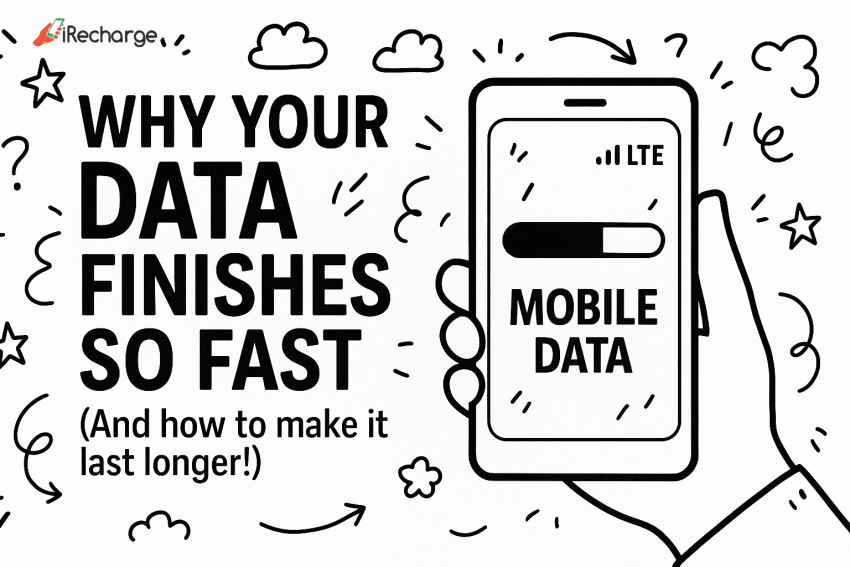There’s hardly anything as frustrating as recharging ₦5,000 worth of data and then boom, it disappears in two days. You’re left staring at your screen like: “Ah ah, who used my data?” Spoiler alert: It was you. Or maybe… your phone.
You’re not alone if you’ve ever felt like your data has a personal vendetta against your bank account. But let’s break it down: why does it finish so fast? And more importantly, how can you make it last?
1. Auto-Updates and Background Apps: The Silent Thieves
You might not see them, but they’re working hard… to drain your data. Apps love to update themselves in the background, refresh your feeds, sync files, and just vibe on your data like it’s a buffet.
What to do:
- Go to your phone settings and turn off background data for non-essential apps.
- Set updates to “Wi-Fi only” so your apps don’t sneak behind your back.
- Close unused apps properly (swiping up is not just a flex, it helps!).
2. HD Everything: Clear, But Costly
We get it, HD videos look crispy. But streaming in high definition (especially on YouTube or Netflix) is a data eater. Just 30 minutes of HD streaming can eat up 1 GB. Wild, right?
What to do:
- Change your video settings to standard definition (SD) when streaming.
- Download content while on Wi-Fi instead of streaming repeatedly.
- On YouTube, tap the three dots on a video and pick a lower quality.
3. Auto-Play is Not Your Friend
Facebook, Instagram, Twitter. They all love auto-playing videos, even the ones you didn’t ask for. It looks cool, but it’s secretly chewing your data like chin-chin.
What to do:
- Disable auto-play on all social media apps.
- Limit video preloading if possible.
- Use Lite versions of apps (e.g., Facebook Lite, Instagram Lite).
4. Hotspotting
Sharing is caring… until your data cries for help. If you’re always the one hot-spotting others, just know they’re probably streaming 4K videos while you think they’re just browsing Twitter.
What to do:
- Set data limits for hotspot users (if your phone allows).
- Password-protect your hotspot.
- Politely say, “My data no too dey.” They’ll understand.
5. Poor Network Signal = More Data Usage
When your network signal is weak, your phone uses more power and data trying to connect and load things. That’s double the suffering.
What to do:
- Stay in areas with strong signal strength when downloading or streaming.
- Download content for offline use when you’re in a good network zone.
6. Cloud Syncing. Useful, But Sneaky
Google Drive, iCloud, and other cloud services often sync photos, files, and videos without asking first. That’s data you didn’t plan for.
What to do:
- Pause or schedule cloud syncing for when you’re connected to Wi-Fi.
- Disable auto-backups unless necessary.
Bonus Tips to Make Your Data Last
- Use a data-saving browser like Opera Mini or Chrome’s Lite Mode.
- Monitor your data usage with built-in tools or apps.
- Set data alerts or limits so you know when you’re nearing the red zone.
Data doesn’t just disappear; it’s used. Sometimes by you. Sometimes by sneaky settings and apps. But now that you know the culprits, you can take control.
Make it a habit to check your settings, manage your apps, and be intentional with how you use your data. That way, the next time you recharge, you won’t feel like your data vanished into thin air.
And hey, if you’re tired of stressful data experiences, maybe it’s time to try iRecharge. Fast, simple, and reliable. Exactly how your data journey should be.

